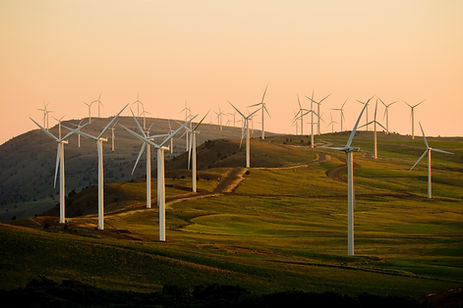
How much BESS capacity is needed
It is difficult to determine exactly how much grid-scale battery capacity is necessary, as this will depend on a number of factors, including the amount of renewable energy being generated, the level of electricity demand, and the availability of other types of energy storage.
The UK government, for instance, has set a target of achieving net zero greenhouse gas emissions by 2050, which will require a significant increase in the use of renewable energy. As the share of renewable energy on the grid increases, the need for energy storage will also increase to smooth out fluctuations in generation and balance supply and demand.
Overall, it is likely that all countries deploying significant proportions of renewable source energy generation will need to increase their grid-scale energy storage capacity in order to support the transition to a low-carbon economy and meet ambitious climate goals.
The UK might need as much as 50 GW of storage capacity by 2050, in order to achieve its target of net-zero carbon emissions, according to the National Grid.
In a new study for storage and other players in the UK’s energy sector, the Oxford-based consultancy Aurora Energy Research finds that up to 46GW of energy storage will be required to manage renewable intermittency to achieve the net zero emission target for the power sector by 2035.
Q&A - a non-exhaustive list of questions and answers on BESS, the technology and relative merits
Site specifications - what we look for in an ideal world when we identify suitable sites
Projects under development
We have a number of projects under development in the regions where we operate.
Most of our projects have sufficient land area to allow the installation of either LFP or RFB technology or to substantially extend the initial target power rating of 250MW in the future, should this be required.
We are developing a number of grid-scale BESS projects in Northern and Western Germany, in the TSO coverage areas of Tennet and Amprion. These are typically 250MW-rated BESS systems (or higher) connecting into the 380kV UHV network level. We ensure that there is sufficient area available for significant expansion in the future, should this be required.
Under exceptional instances, we develop 120MW projects connecting into the 110kV network level in the DSO areas of SH Netz (Northern Germany).
Please contact us if you are interested in BESS projects in Germany as an Investor/Operator.
Why are BESS required
Battery energy storage systems store excess electricity that is generated by renewable energy sources such as solar panels or wind turbines. This excess electricity can then be used to meet demand when renewable energy sources are not available, such as at night or on cloudy days.
In the UK, battery energy storage systems are becoming increasingly necessary as the country moves towards a low-carbon economy and aims to reduce its reliance on fossil fuels.
Battery storage systems help to smooth out fluctuations in renewable energy generation and make the power grid more stable and reliable. They can also help to reduce greenhouse gas emissions by allowing more renewable energy to be used instead of fossil fuels.

What sites do we look for and some questions & answers
We have summarised some of the attributes we look for in potentials sites for large battery energy storage projects. These are available if you click on our logo on the left.
We have also prepared a Q&A paper with some - probably not all - of the questions and and answers that spring to mind when a landowner considers siting a BESS on their land. We are happy to discuss any specifics in a call or meeting, of course.


